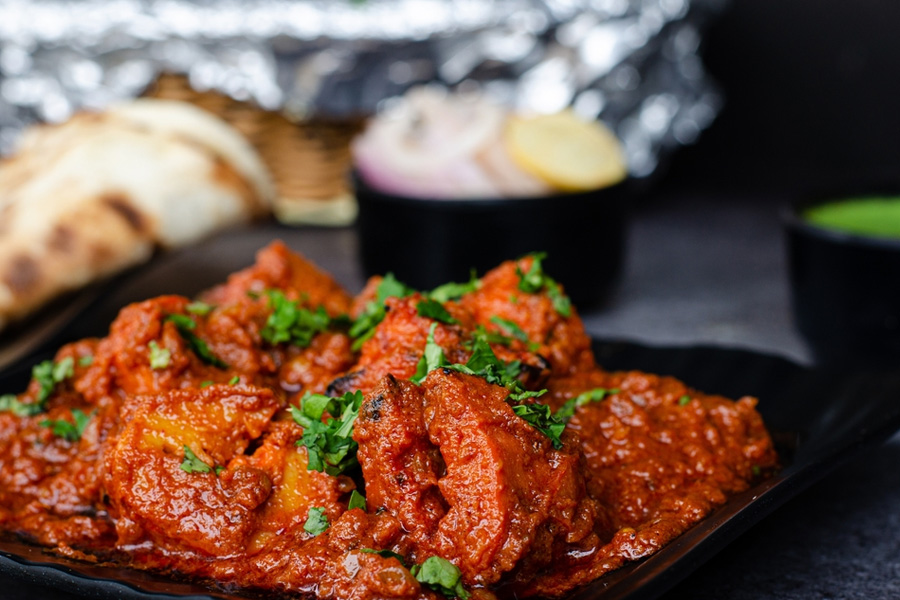In the quest for a healthier lifestyle, many of us turn to alternatives that promise to be better for our bodies. One such popular substitute is soya chaap, widely regarded as a high-protein, vegetarian alternative to meat. It’s hailed as a favourite street food in North India, served grilled, fried, or cooked in creamy curries. However, is soya chaap really as healthy as it seems? You might be surprised to find what’s really hiding in your ‘healthy’ protein fix.
What Is Soya Chaap Made Of?
Soya chaap has been marketed as a meat substitute for vegetarians and vegans due to its texture and protein content. It appears to be an excellent source of plant-based protein derived from soybeans, making it seem like the perfect addition to your diet.
However, according to Pooja Shah Bhave, Consultant Clinical Dietician & Certified Diabetes Educator based in Mumbai, soya chaap is not just made of soy. “Soya chaap is used as a common meat substitute or as a vegan meat. It is, in fact, a very popular street food found in North India. But soya chaap isn’t only soya. In fact, soya chaap is made up of soya and refined wheat flour or Maida,” she explains.
Hidden Ingredients: The Role of Refined Wheat Flour (Maida)
What sets off alarm bells is the inclusion of refined wheat flour, or Maida, in soya chaap. It’s not just a small portion either. “Sometimes, if it is sold at a cheaper rate on streets, it essentially means the major content in it is refined flour, and the lesser content is soya flour or chunks,” Bhave adds.
This means that the nutritional value, especially in terms of protein, is significantly lower than expected. While soy itself is rich in protein, the excessive use of Maida dilutes the benefits, making your ‘protein fix’ less effective than actual soy chunks or granules.
Also read: Myth Vs Fact: Does Protein Powder Increase Uric Acid?
Health Hazards Lurking in Your Soya Chaap
Not only does refined flour reduce the protein content, but it also brings its own set of health risks. Regular consumption of Maida is linked to obesity, diabetes, insulin resistance, and even heart diseases. Bhave cautions, “In fact, having soya chaap regularly under the pretext of having a protein food may put you at increased risk of obesity, diabetes, heart diseases, insulin resistance, and cancer due to the presence of Maida and palm oil.”

Palm oil, another hidden ingredient in many cheap, street-sold versions of soya chaap, is also a cause for concern. It’s often used because it’s inexpensive, but frequent consumption of palm oil is hazardous to health. High in saturated fats, palm oil contributes to high cholesterol levels, raising the risk of cardiovascular diseases.
Also read: Protein Deficiency In Children: Who Is Most At Risk And How To Prevent It?
Street Food Woes: Unregulated Additives and Cooking Methods
Soya chaap tandoor, a favourite street food, has even more hidden dangers. Often, the soya chaap sold on the streets is cooked in unhygienic conditions, and many vendors add harmful, non-food grade colours to make it more visually appealing. These additives can wreak havoc on your health over time.

Bhave also points out the dangers of grilling or tandoor cooking methods. “The burnt part of the grilled or tandoor soya chaap contains acrylamide, which potentially causes cancer in the long run,” she notes. Acrylamide forms when starchy foods are cooked at high temperatures, and the consumption of this compound has been linked to cancer in various studies.
Conclusion
While it might seem like a good idea to swap meat for soya chaap as a source of plant-based protein, the reality is more complicated. “The protein value of soya chaap is much lesser than the actual soy chunks or granules,” Bhave emphasises, making it an inferior option compared to other soy products.
Moreover, the inclusion of refined wheat flour, palm oil, non-food grade colours, and the formation of acrylamide during grilling or tandoor cooking means that frequent consumption of soya chaap could do more harm than good. So, the next time you’re craving that street-style soya chaap, it might be worth reconsidering and looking for healthier plant-based protein options like tofu, tempeh, or edamame.
